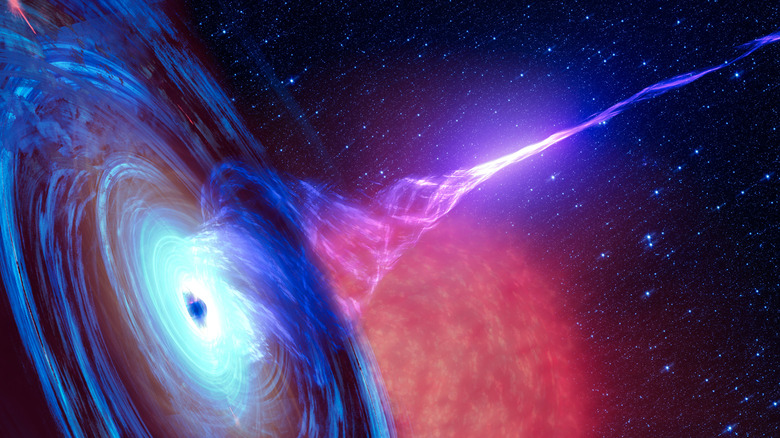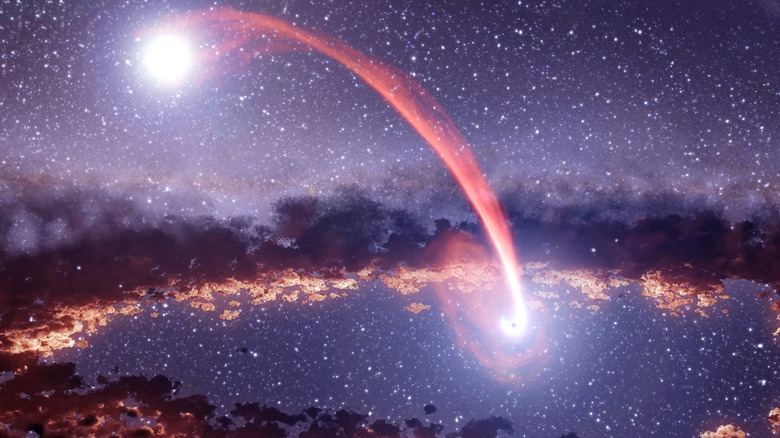The Big Myth About Black Holes You Need To Stop Believing
Black holes have made a number of big headlines over the last few years. In 2019, the aptly named Event Horizon Telescope (EHT) managed to capture one on film for the first time. And in May of 2022, the EHT snapped a pic of Sagittarius A*, the supermassive black hole that calls the Milky Way galaxy it's home.
Thanks to an endless stream of science fiction books and films, most people imagine these holes of black as galactic bullies that roam the universe, gobbling up anything that gets in their way. But black holes are invisible, they slow down time when you get close to one, and do not work like a Heavenly Hoover, sucking up space dust.
The reason for this is pretty simple. Like Earth — and every other mass in the universe — black holes also have a gravitational pull, and planets can orbit around one just like the Earth orbits the sun and the moon orbits the Earth. In fact, Dr. Christina Smith, who has her doctorate in Astrophysics from the University of Manchester, pointed out that if the Sun were to disappear suddenly, and a black hole (with the exact same mass) took its place, the Earth wouldn't get sucked in; it would continue orbiting around it, as if nothing happened.
Black holes don't suck
Going one step further, if Earth were replaced with a black hole of the same mass, the black hole wouldn't fill the same volume. However, it would create it would occupy a volume of space just two centimeters in diameter — the black sphere known as an event horizon. The event horizon is a theoretical point of no return around a black hole where absolutely nothing — including light — can break free (via Space.com). These are literally the densest known objects in the entire universe.
Yet, according to Forbes, the "curvature of space" would be identical around them, so objects that would have zoomed past Earth would likely miss a black hole. What's more, things that would have hit our planet would likely avoid a black hole entirely, because they would have to cross over that tiny two-centimeter event horizon to get trapped.
Mass is the key to the equation. At the center of every black hole lies a singularity — a minute area with an infinitely massive concentration of mass. We know the gravitational pull of an object becomes exponentially stronger based on how much mass an object has. As long as an object remains outside the event horizon, it has potential to escape the enormous gravitational pull of a black hole, but the closer it gets, the faster it needs to move away. Once it crosses over the event horizon ... well, there's no happy ending to that story.

